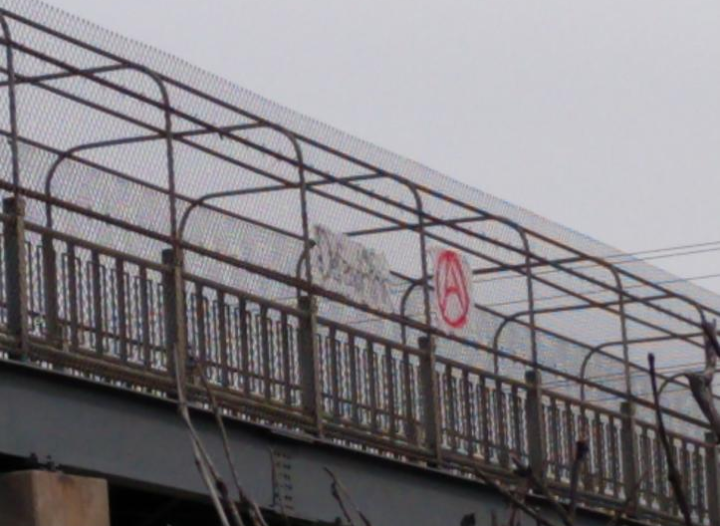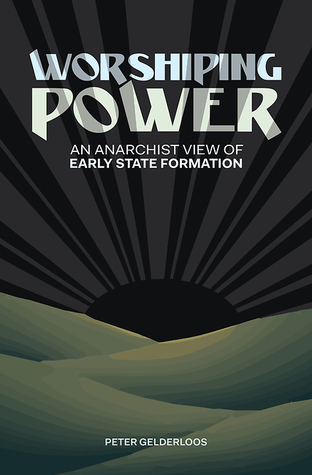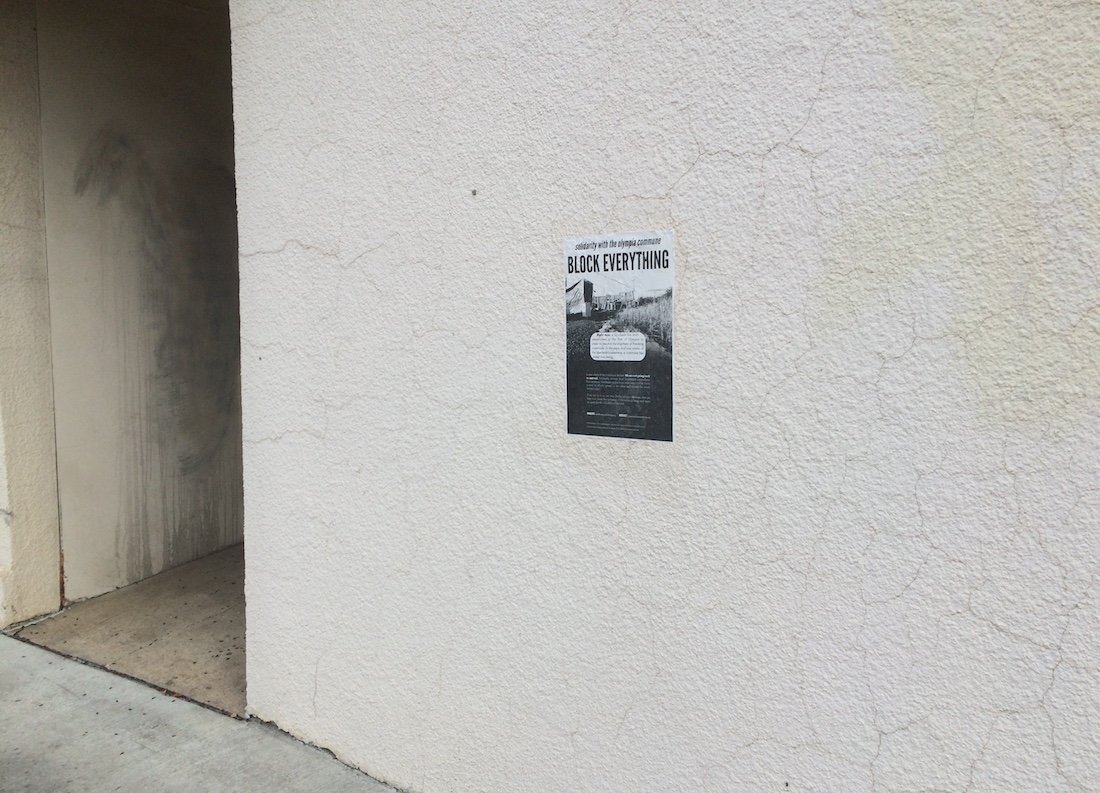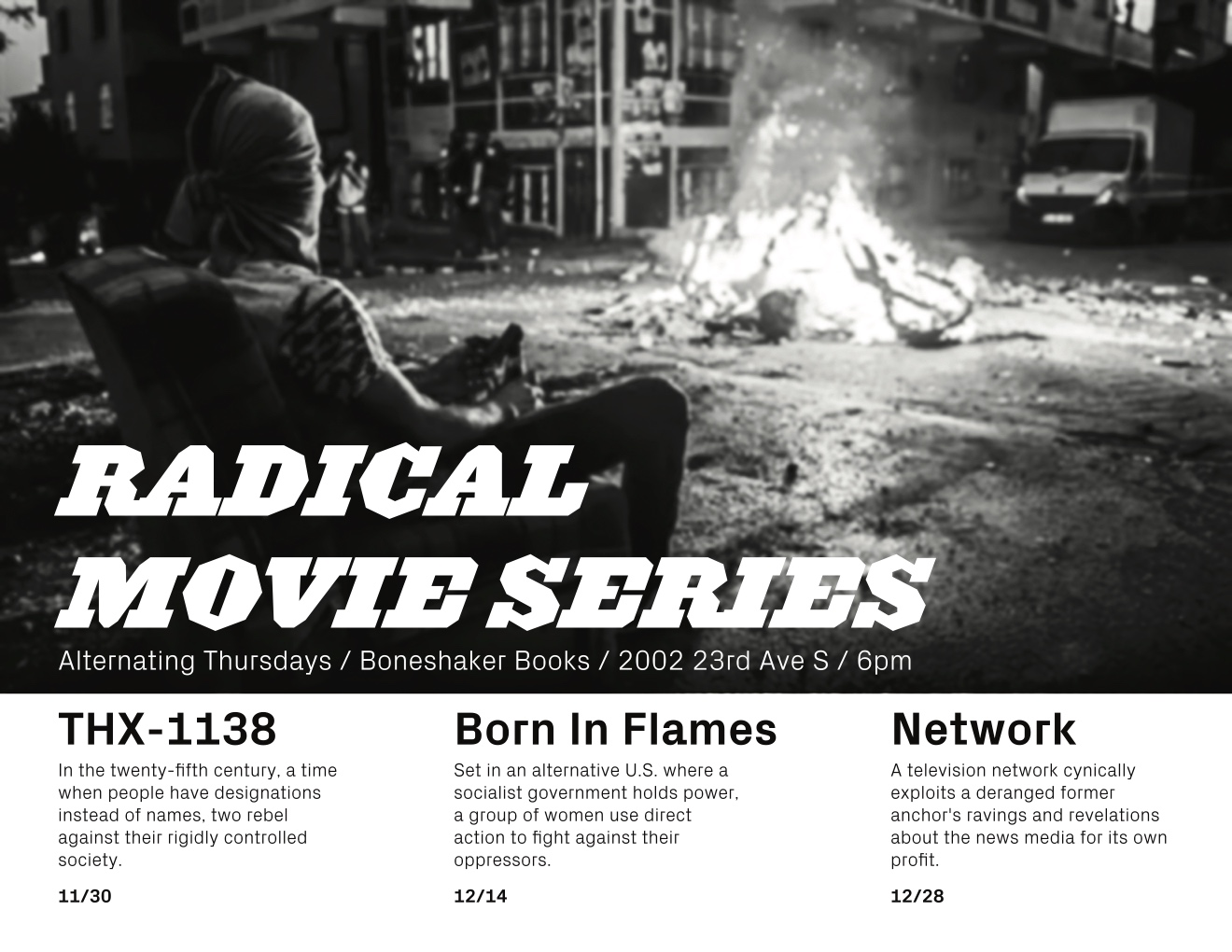Anonymous submission to Conflict Minnesota

Yesterday, March 24th, banners went up on a walk bridge that goes over 494, one of the busiest stretches of highway in the state. One banner said “Defend Afrin”.
Anonymous submission to Conflict Minnesota

Yesterday, March 24th, banners went up on a walk bridge that goes over 494, one of the busiest stretches of highway in the state. One banner said “Defend Afrin”.
From Triple Canopy
Thursday, March 8th
Third Rail Quarterly
1237 Fourth St NE
7:00 PM
Can we imagine a doctor-patient relationship based on collaboration and trust, on a more holistic view of the patient? How can we conceive of the care we give and receive from others as being enmeshed with our political futures? In their recently published epistolary essay, “Letter to a Young Doctor,” Johanna Hedva reminds us of the importance of “finding a way toward healing—which is to say finding the way that is healing—but also toward how political resistance might work, toward justice.”
For To Those Mad, Sick, Crip Selves, Hedva will read excerpts from “Letter to A Young Doctor,” which is part of This Earth Our Hospital, a book in progress that consists of a series of essays and performances meditating on the politics of sickness, disability, and healing. They will also read from their forthcoming novella, On Hell, which envisions the insurrectionary potential of the crip, queer, sick body. The reading will be followed by a discussion moderated by Triple Canopy senior editor Lara Mimosa Montes.
From It’s Going Down

With frozen hands we reappropriated this city’s infrastructure to cast a few words of cold insurrection. A desire to set it all on fire sits just adjacent to the light-rail (which is dressed up as a carriage for the super rich—only Super Bowl ticket holders can ride this weekend!). An ode to the ZAD hangs above 35w from a bridge in South Minneapolis, welcoming tourists to a temporarily sterile downtown (they relocated the homeless for this special event). Helicopters flying over head, tanks on the ground—this is a sneak peak of a militarized police state. Lets not go down without a fight. Against the Super Bowl and its world!
– some anarchists

From Nightfall
We’ve now passed the one year mark of Trump’s presidency. This time last year we were fast learning what his reign had in store for us. Following the riotous eruptions nationwide on the day of his inauguration, immense numbers of people participated in Women’s Marches, others spontaneously blockaded airports, and hundreds stormed the UC Berkeley campus on February 1st and laid siege to the police-protected venue hosting Milo Yiannopolous.
In the year since nothing has slowed down. The regime continues to launch assaults on a daily basis: voting down net neutrality, revoking the temporary protected status of thousands of Central American migrants, allowing states to require people to work in order to acquire Medicaid. All of which was punctuated by scandal after scandal, provoking our indignation at Trump’s latest racist remark or indiscretion. Rage against the police as well as the far-right has escalated and spread to every corner of the country.
At the beginning of 2017, we published an essay “Autonomous Organizing in the Age of Trump” which looked to the year ahead while sketching the outline of a possible strategy for resistance. Without falling into passive retrospective we want to consider the past twelve months with this strategy in mind, and to see how we can prepare for the days, months, and years ahead.
Autonomous self-organization is the term we used to describe the approach we laid out. By autonomous we mean actions taken outside of formal organizations, parties, non-profits, etc. In place of organizations we suggest affinity groups, the close circle of friends whom one trusts deeply—as trust and a shared vision is necessary for acting together in a meaningful way. By self-organization we mean that there are no leaders to follow when acting, that affinity groups should strive to take active roles instead of passively participating. In addition to guarding against the threats posed by authoritarianism, repression, and co-optation, self-organization makes our struggles more vital and effective, taking away the passivity inherent in waiting for someone higher up to tell us how to achieve the world we want as well as the disappointments and frustrations we encounter when we go along with something that feels wrong to us just because the more experienced or legitimate people say it is the right path.
On January 20th, 2017 perhaps a thousand people marched from south Minneapolis to downtown against Trump’s inauguration. The night before, posters were wheatpasted along the route of the march with anti-state messages that interrupted the prevalent narrative that Trump was to blame rather than the whole system. After the mass march concluded in front of the county building, some came together on the light rail tracks and began shooting off fireworks, drawing in more and more people bored by the politicians’ speechifying before deciding to march. The crowd shot off more fireworks at the youth jail and vandalized the nearby Wells Fargo headquarters before quietly dispersing. By all accounts, there was no one in charge, just a convergence of affinity groups who each brought their own goals and contributions—fireworks, banners, spray paint, a sound system, etc—together forming a successful action.
Between larger public actions, single affinity groups can take action in a decentralized manner while honing their skills. For example, multiple vandalism attacks on gentrifying businesses in south Minneapolis took place over the past year, with at least three reported in February and one more on Halloween. Beyond these types of attacks, the idea of affinity groups applies more broadly to any time a crew of friends organizes together to accomplish a task, such as a crew of graffiti writers who steal spray cans before painting the town.
It is hard to think of a place where this approach was better put to into practice recently than at the G20 summit in Hamburg. When the police cracked down on the large demonstration on the eve of the summit, the crowd fragmented into smaller mobs that split up throughout the city center, wreaking havoc as they went. Smaller groups attacked police officers, burnt luxury cars, and blockaded intersections all night before crowds re-converged at dawn. The police, who had been prepared for the threat of a single enormous crowd, were powerless to contain the decentralized and autonomous resistance that spread throughout Hamburg. The police would not regain control of the city until the end of the summit. In the meantime, a liberated zone was established and people were free to do as they pleased—perhaps they enjoyed a drink outside with friends, covered the walls in artful slogans, or looted a convenience store. Speaking on revolutionary organization, the Invisible Committee write “by successfully reclaiming urban districts and areas of the countryside, by establishing relatively secure zones, it became possible to go beyond the stage of discrete, anonymous activity on the part of little groups.”
Approaching this question locally, we’re obviously starting from a much smaller scale. Still, there is something to think about when a masked individual steps away from an anti-fascist demonstration and tags “Antifa Zone” on a wall, as happened last August along Cedar Ave. It shows, first of all, that in this neighborhood we have some amount of power, that one could brazenly declare such a thing in broad daylight—if a right-winger could do the same with one of their own slogans, they haven’t dared to try it yet. Second, and perhaps most importantly, it shows that police control is not omnipotent, that there are gaps in the police’s ability to maintain order. It is by expanding these gaps in police power that we open up the potential to create a real “antifa zone” or a liberated space, just as the decentralized attacks in Hamburg opened up such a space despite the twenty thousand police officers summoned to the city.
To expand these gaps through decentralized actions, emphasis is placed on actions that are easy to do, with tools that are easy to acquire. Paint is cheap and easy to find—pouring it in a bottle and tossing it at a bank ATM is simple to accomplish. Ten more affinity groups inspired by the paint attack could easily do the same with a little effort. For example, from the end of summer until Columbus Day, the Pioneer Statue in northeast Minneapolis was vandalized at least four times, presumably by different people or groups. The first was communicated anonymously over counter-info site Conflict MN; those that followed it were apparently inspired by the initial defacement, finding it easy to repeat. Likewise with a wave of vandalism against the police also in northeast Minneapolis. Over the summer several anti-police slogans were seen spray painted in the area, and come autumn there were reports of graffiti at the police union headquarters, a cruiser and the MPD substation itself. From the hand styles it again seems safe to assume these were often from different individuals or affinity groups.
For these practices to truly proliferate, they must spread beyond any particular subculture, scene, or identity. The state and the media have latched onto the term “antifa” as an identity for a certain set of rebels who participate in militant actions. With this label, or any other, individuals are put at a distance from everyone else, making them appear foreign rather than as as one’s neighbor, one’s coworker, one’s friend. The goal with this maneuver is isolation, preventing rebellious practices from spreading all throughout society and reducing backlash when repression strikes.
Taking a step back, a fundamental component of affinity group-based autonomous organizing is of course affinity—that is, friendship. A lot of people don’t have a crew to go to a demonstration with, or go tagging with, or to even speak of these ideas with. Often, there isn’t anyone in our lives who we trust enough for these things, or who is even interested in them. Having public spaces to find each other in are vital to forming the bonds that grow into what we call affinity groups. Spending time together and sharing our lives with one another can strengthen these bonds over time and ultimately form the basis of the liberating experiences we create. Many who have spent time at Standing Rock or other protest encampments in the past have remarked that just the simple fact of living together, of making and sharing food around a fire day in and day out, caused their projects together to proliferate and bloom in ways that no amount of prearranged structure ever could. Putting our lives in common in such a way here in the city can be a more tricky proposition, as cities were in many ways designed to keep people locked into the role of isolated worker-consumers, but this doesn’t mean we can’t take small steps in such a direction. Reading groups, workshops, movie screenings, potlucks are a few of endless possibilities where we can come into contact with others who see the world as we do, with whom we experience community. Through these encounters, constellations of crews and affinity groups can emerge.
As a friend once said, the commune is that which sustains the attack and the attack is that which enlarges the commune. It is through friendship that we build the bonds necessary to self-organize and attack, and it is through attacking this world of misery that we can reclaim a sense of living, fighting because we have something to fight for: each other.
Anonymous submission to Conflict Minnesota

Thursday, February 15th
Walker Church
3104 16th Ave S
6:30 PM
Worshiping Power: An Anarchist Vision of Early State Formation
Released by AK Press
Written by Peter Gelderloos, author of How Nonviolence Protects the State and Anarchy Works
This book attempts to answer the question of where states came from and why, looking at the causes of state formation and tracing different pathways of state development. How did the State co-evolve with different models of the family, religion, warfare, commerce, and economic production?
The arguments presented counter the typical explanations that are dominant in society at large as well as in anticapitalist movements, revealing state formation as a constant process with certain patterns but without any single motor or dialectic. It is also a completely reversible process, as many societies have destroyed their states once it became clear how oppressive they were.
The talk would give a few examples to illustrate the breadth of possible pathways of state formation, as well as the importance of patriarchy to the process, and then focus on the emergence of democracy and the modern State, as the most relevant concern for people today who go up against state power in their struggle for a better world.
Anonymous submission to Conflict Minnesota

Alternating Thursdays
Boneshaker Books
2002 23rd Ave S
6:00 PM
February 8th: Dead Man
On the run after murdering a man, accountant William Blake encounters a Native American man named Nobody who prepares him for his journey into the spiritual world.
February 22nd: The Battle of Algiers
In the 1950s, fear and violence escalate as the people of Algiers fight for independence from the French government.
March 8th: The Little Rascals
Members of a misogynist group of working class boys must toss away their toxic masculinity and defeat a rich adversary in order to build a new clubhouse.
March 22nd: A Taxi Driver
The experience of a taxi driver who accidentally got involved in the Gwangju Uprising of May 1980 while driving a foreign journalist around during the weeks-long insurrection in South Korea.
Anonymous submission to Conflict Minnesota

On New Year’s Eve an assorted crew of rebels braved the sub-zero temperatures in Minneapolis and met in a park downtown to participate in the decade-old tradition of showing people behind bars some love. A small crowd accompanied by percussion instruments and a sound system made their way to the youth jail. After a brisk walk, we arrived at the jail blasting music for everyone locked up inside. Very soon the first heads started popping up in the narrow windows. We greeted those inside with chants of “Burn all the jails, burn all the prisons, just make sure the cops are in ’em!” and “free the kids!” After the short dance party, we moved on before police arrived. We headed back to the park and dispersed into the night. Even though it was a small gathering, we showed love and solidarity to those who can’t celebrate the New Year with their friends and loved ones, letting them know they are not alone.
Anonymous submission to Conflict Minnesota

Alternating Thursdays
Boneshaker Books
2002 23rd Ave S
6:00 PM
January 11th: La Haine
Twenty four hours in the lives of three young men in the French banlieues the day after a violent anti-police riot.
January 25th: Children Of Men
In 2027, in a chaotic world in which women have become somehow infertile, a former activist agrees to help transport a miraculously pregnant woman to a sanctuary at sea.
From No More Jails

Prisons are fucking awful. Everything about them is designed to suffocate any semblance of life, of hope, of rebellion in order to shield and protect the catastrophe that is the world as we know it. Though the isolation they impose is not impenetrable.
Every New Year’s Eve around the world friends gather opposite the prison walls to send love to those inside, reminding them that they are not forgotten. Each year we designate this night to the living memory of those held captive.
Come to Elliot Park on December 31st, 2017 at 6pm!
Bring a friend, bring noisemaker, and bundle up!
Anonymous submission to Conflict Minnesota

Wednesday, January 3rd
Boneshaker Books
2002 23rd Ave S
6:00 PM
One last discussion on the Invisible Committee’s Now.
“From our singular experience, our encounters, our successes, our failures, we draw a clearly partisan perception of the world, which conversation among friends refines.”
Free zine copies of the book will be available as well as paperback copies.
Anonymous submission to Conflict Minnesota

Cops protect Rape Row.
Cops are rapists too.
Solidarity with Anna
Chambers.
The banner drop near UMN Rape Row (aka “Frat Row”) drew almost immediate pig attention this weekend. And for all the attention it drew, we can be sure someone was raped there this weekend, as they are every weekend. The toxic frat culture encourages disrespect and sexual violation, and the Greek Life codes prohibit sororities from hosting parties, which creates a power imbalance by giving frats control of social situations. Police protect frat houses with “under the table” agreements with the Greek community, such as not shutting down frat parties even though they are well aware of the countless underage drinkers that attend. This allows a perfect haven for rapists to hunt.
 Anna Chambers isn’t the first and unfortunately won’t be the last victim-survivor of police rape. The police state churns out sexual violation—every body cavity search is rape, prisoners are assaulted every day and at risk for sexual abuse by guards. We also know that sex workers are regularly abused by police. Just back in September a Minneapolis pig was arrested for assaulting his son’s girlfriend, and we can be sure that many more assaults go unreported.
Anna Chambers isn’t the first and unfortunately won’t be the last victim-survivor of police rape. The police state churns out sexual violation—every body cavity search is rape, prisoners are assaulted every day and at risk for sexual abuse by guards. We also know that sex workers are regularly abused by police. Just back in September a Minneapolis pig was arrested for assaulting his son’s girlfriend, and we can be sure that many more assaults go unreported.
We believe Anna Chambers & we’ll continue fighting for the end of police and frats.
Anonymous submission to Conflict Minnesota

As news of the raid on the Olympia commune reached us, we decided to share a gesture of solidarity carried out in so-called Minneapolis.
We adorned the walls of our city with posters echoing the words of the brave communards on the west coast.
Long live the commune
Anonymous submission to Conflict Minnesota

I love finding these little acts of rebellion that disrupt our views as this empire crumbles. With the Super Bowl around the corner, the city plans to turn the streets into a “clean zone” and a massive police state security zone. Let’s use what we can to continue to disrupt the view with tags, banners, flyers, stickers, paint, and all forms of unauthorized art to remind them we live here!
Anonymous submission to Conflict Minnesota

Alternating Thursdays
Boneshaker Books
2002 23rd Ave S
6:00 PM
November 30th: THX-1138
In the twenty-fifth century, a time when people have designations instead of names, two rebel against their rigidly controlled society.
December 14th: Born In Flames
Set in an alternative U.S. where a socialist government holds power, a group of women use direct action to fight against their oppressors.
December 28th: Network
A television network cynically exploits a deranged former anchor’s ravings and revelations about the news media for its own profit.